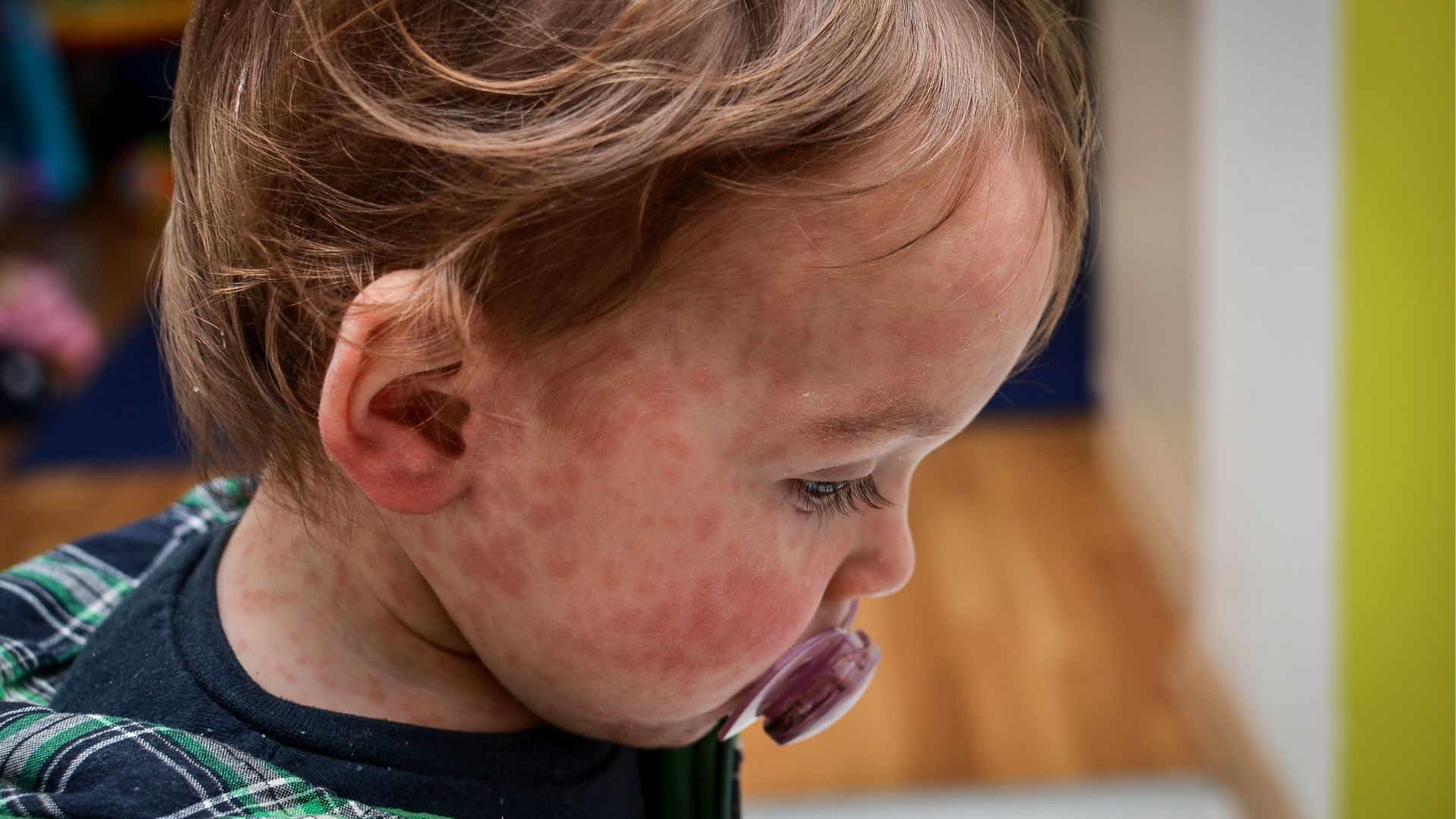With cases of measles increasing, the NHS in Lincolnshire is encouraging people to check their MMR (measles, mumps and rubella) vaccination status, particularly if they are about to travel abroad during the summer holidays.
Why measles is a concern
Measles is an infection which spreads very easily and can cause serious problems for some people. It usually starts with cold-like symptoms – including a high temperature, a runny or blocked nose, sneezing, a cough, and red or sore watery eyes – followed by a rash a few days later, and some people may also get small spots in their mouth.
Data from the UK Health Security Agency (UKHSA) shows confirms 674 cases in England since January 2025 (as of 31 July), an increase of 145 cases since the last report on 3 July, the majority being in unvaccinated children aged 10 and under. Most of these cases have been in London, the north west and the east of England.
Measles risk: Local and abroad
Although there are no confirmed cases in Lincolnshire, the cases in other parts of England and the numbers of measles cases across Europe are causing concern, especially with the summer holidays on the horizon, and having the MMR vaccine is the best way to prevent measles.
“We’re seeing outbreaks of measles in several popular holiday destinations in Europe, including France, Italy, Spain and Germany,” explains Dr Sunil Hindocha, GP and Medical Director, NHS Lincolnshire Integrated Care Board. “There are very high numbers of cases in other countries including Romania, Pakistan, India, Thailand and Nigeria.
Protect yourself: Check your vaccination status
“We strongly encourage everyone to check their vaccination status – have you and your children had the MMR vaccine? If you are not sure, check with someone who has knowledge of your medical history – your GP should have a record of your vaccinations. You may also be able to see your vaccination records using the NHS app.
“If you haven’t been vaccinated, you should contact your GP to arrange a vaccination. Routinely offered to all children in the UK, the MMR vaccine is available to anyone who has not had two doses, irrespective of age, with two doses giving lifelong protection against measles, mumps and rubella.”
Festivals and crowded places increase risk
As well as travel abroad, the UKHSA is warning that festivals are high risk environments for measles due to existing cases in some parts of England.
“Festivals are the ideal place for measles to spread, given the numbers of people who attend, many of whom won’t have had the MMR vaccination. It’s also important to remember that, whilst most cases of measles have been in unvaccinated children aged 10 years and under, there are also cases being reported in young people and adults,” adds Sunil.
The decline in vaccination rates
Since the introduction of the measles vaccine in 1968, at least 20 million measles cases and 4,500 deaths have been prevented in the UK. However, in recent years there has been a decline in the uptake of childhood vaccinations including MMR, exacerbated by the Covid-19 pandemic, which means that many thousands of children are left unprotected.
Simple advice: Get vaccinated now
“Our advice is simple – if you or your child has not been vaccinated against measles, it is important that you have the MMR vaccine, even if you are not planning to travel abroad this summer.
“Measles spreads very easily and can be a nasty disease, potentially leading to complications and life-long consequences. It’s never too late to get vaccinated, if you’re not sure if you or your family are up to date, please contact your GP practice or you may be able to check your vaccination record using the NHS app. Alternatively, for your children, you can check their red book,” concludes Sunil.
Learn more about measles and vaccination
For more information on measles and how to get vaccinated, visit the NHS Measles page.
